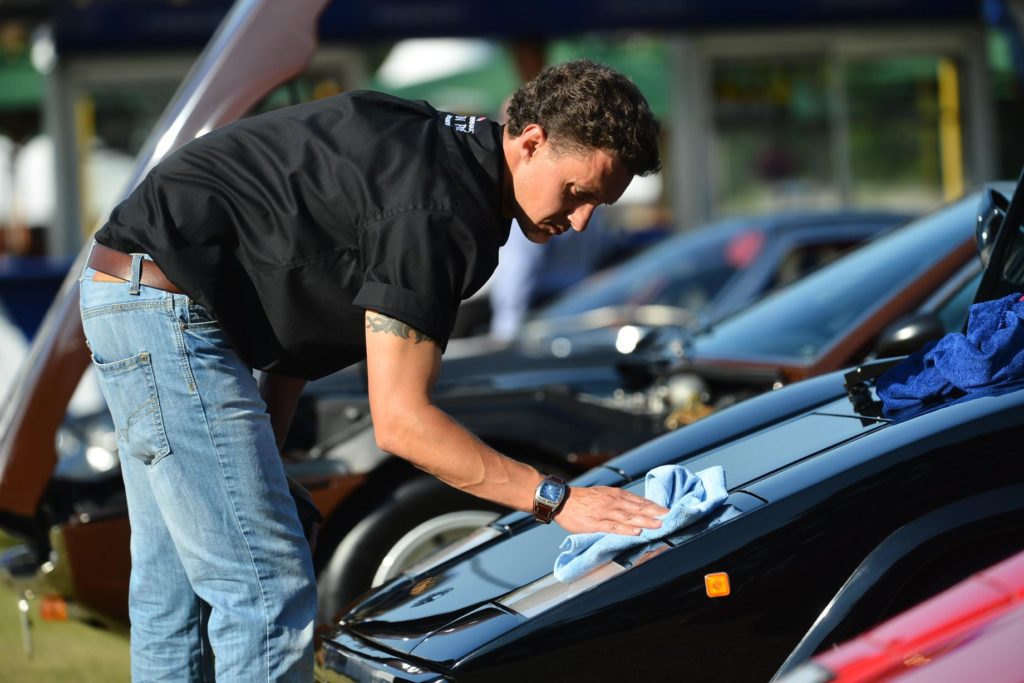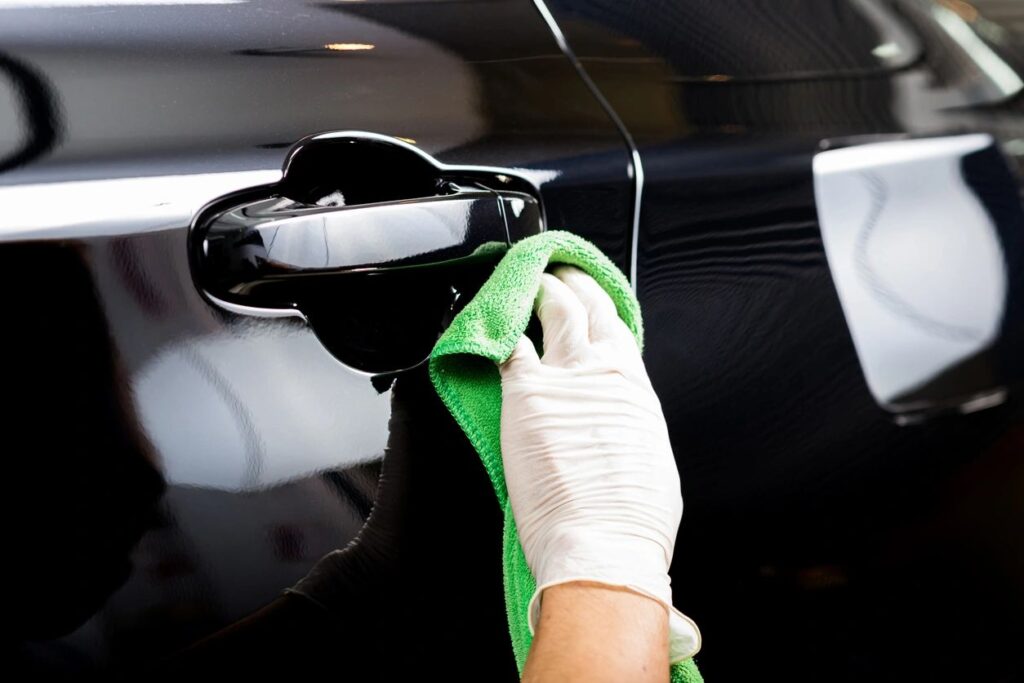The Ultimate Guide to Car Body Repair
Whether it’s a minor scratch or a major dent from a collision, car body damage is an unfortunate but common issue for vehicle owners. Understanding how car body repair works can save you money, help you make informed decisions, and ensure your vehicle looks and performs at its best. In this comprehensive guide, we’ll walk you through everything you need to know about car body repair — from types of damage and repair methods to cost considerations and professional services.
What Is Car Body Repair?
Car body repair refers to the restoration of a vehicle’s exterior to its original condition after it has sustained damage. This can include fixing dents, scratches, cracked bumpers, rust, paint chips, and more serious structural issues. Whether it’s due to an accident or general wear and tear, timely repair is crucial to maintain both the aesthetic and resale value of your car. If you’re looking for professional service, a trusted car body shop in Essex can provide expert repairs using advanced tools and techniques to restore your vehicle to showroom condition.
Common Types of Car Body Damage
- Scratches and Paint Chips
These are the most frequent types of damage and can result from anything from a runaway shopping cart to overgrown hedges. Left untreated, they can lead to rust. - Dents and Dings
Typically caused by minor collisions or parking mishaps, dents can vary in severity. Paintless Dent Removal (PDR) is often used for small, shallow dents. - Cracked or Broken Bumpers
Bumpers take the brunt of many low-speed impacts and may need to be either repaired or replaced entirely. - Rust and Corrosion
Over time, exposure to moisture can cause parts of your car’s bodywork to corrode, especially if damage is not treated early. - Panel and Frame Damage
More serious accidents can cause structural damage that affects the car’s alignment and safety.
Methods of Car Body Repair
1. Paintless Dent Removal (PDR)
Ideal for small dents where the paint is still intact, PDR uses specialised tools to massage the metal back into shape without the need for repainting.
2. Traditional Dent Repair
For deeper dents or scratches that damage the paint, technicians use filler and sanding before repainting the affected area.
3. Panel Replacement
If a panel is too damaged to repair, it may be replaced entirely — common with severely dented doors or bonnets.
4. Smart Repairs (Small to Medium Area Repair Technology)
This technique focuses on fixing localised areas without needing to respray the entire panel, offering a cost-effective and efficient solution.
5. Car Repainting and Blending
After repairs, areas may need to be resprayed to match the rest of the vehicle, using precise colour-matching technology.
Cost of Car Body Repairs
The cost of body repairs varies significantly based on the extent of the damage, materials used, labour rates, and your location. For example:
- Minor scratch repair: £100–£250
- Paintless dent removal: £70–£150 per panel
- Bumper replacement: £300–£700
- Full respray: £1,000–£5,000
Always request a detailed estimate and ensure the shop uses high-quality materials and approved repair methods.
Choosing a Car Body Repair Specialist
When selecting a repair centre, consider the following:
- Certifications and Accreditations (e.g., IMI, ATA)
- Warranty on Repairs
- Customer Reviews and Ratings
- Use of Original Equipment Manufacturer (OEM) Parts
- Transparent Pricing
DIY vs. Professional Repair: What’s Best?
While minor fixes like polishing out surface scratches or touch-up painting can be DIY, most repairs are best handled by professionals. Attempting to repair significant damage without the proper tools or experience can worsen the issue or reduce your car’s resale value.
Final Thoughts
Investing in proper car body repair not only keeps your vehicle looking great but also preserves its value and safety. With new technologies and eco-friendly repair options becoming more accessible, restoring your vehicle to like-new condition has never been easier.
Whether you’re dealing with a minor scuff or major collision damage, consult a reputable professional and choose a repair solution that aligns with your needs and budget.
-
Categories
- Abarth
- Alfa Romeo
- Aston Martin
- Audi
- Bentley
- BMW
- Caterham
- Chevrolet
- Chrysler
- Citroen
- Dacia
- DS
- Ferrari
- Fiat
- Ford
- Great Wall
- Honda
- Hyundai
- Infiniti
- Isuzu
- Jaguar
- Jeep
- Kia
- Land Rover
- Lexus
- Lotus
- Maserati
- Mazda
- McLaren
- Mercedes
- MG
- Mini
- Miscellaneous Articles
- Mitsubishi
- Morgan
- Motability
- Nissan
- Peugeot
- Porsche
- Renault
- Rolls-Royce
- Saab
- Seat
- Skoda
- Subaru
- Suzuki
- Tesla
- Toyota
- Vauxhall
- Volvo
- VW
- Zenos
-
Articles
- June 2025
- April 2025
- February 2025
- January 2025
- September 2024
- July 2024
- March 2024
- January 2024
- December 2023
- September 2023
- August 2023
- May 2023
- January 2023
- October 2022
- July 2022
- May 2022
- April 2022
- February 2022
- December 2021
- November 2021
- October 2021
- September 2021
- August 2021
- July 2021
- June 2021
- May 2021
- April 2021
- March 2021
- February 2021
- January 2021
- December 2020
- November 2020
- October 2020
- September 2020
- August 2020
- July 2020
- June 2020
- May 2020
- April 2020
- March 2020
- February 2020
- October 2019
- September 2019
- August 2019
- July 2019
- June 2019
- April 2019
- March 2019
- February 2019
- January 2019
- October 2018
- August 2018
- July 2018
- June 2018
- April 2018
- March 2018
- December 2017
- August 2017
- July 2017
- June 2017
- May 2017
- March 2017
- February 2017
- January 2017
- December 2016
- November 2016
- October 2016
- September 2016
- August 2016
- July 2016
- May 2016
- April 2016
- March 2016
- February 2016
- January 2016
- December 2015
- November 2015
- October 2015
- September 2015
- August 2015
- July 2015
- June 2015
- May 2015
- April 2015
- March 2015
- February 2015
- January 2015
- December 2014
- November 2014
- October 2014
- September 2014
- August 2014
- July 2014
- June 2014
- May 2014
- April 2014
- February 2014
- January 2014
- December 2013
- November 2013
- October 2013
- September 2013
- August 2013
- July 2013
- June 2013
- May 2013
- April 2013
- March 2013
- February 2013
- January 2013
- December 2012
- November 2012
- October 2012
- September 2012
- August 2012
- July 2012
- June 2012
- May 2012
- April 2012
- March 2012
- February 2012
- January 2012
- December 2011
- November 2011
- October 2011
- September 2011
- August 2011
-
Calendar
June 2025 M T W T F S S 1 2 3 4 5 6 7 8 9 10 11 12 13 14 15 16 17 18 19 20 21 22 23 24 25 26 27 28 29 30 -
Meta





